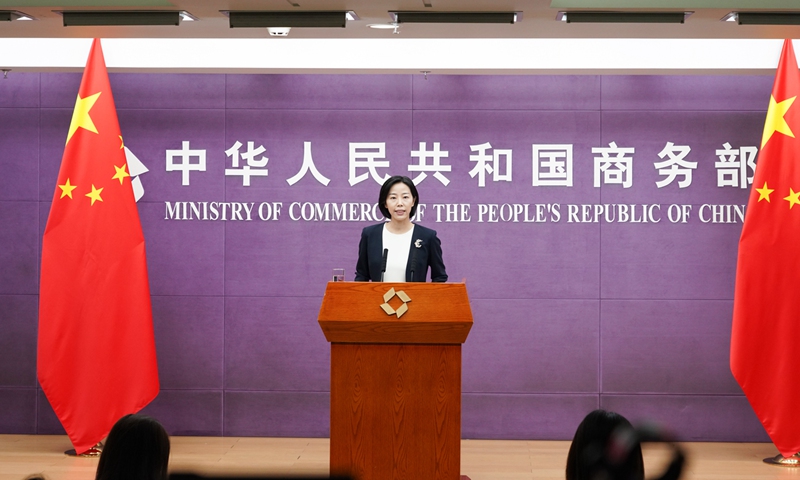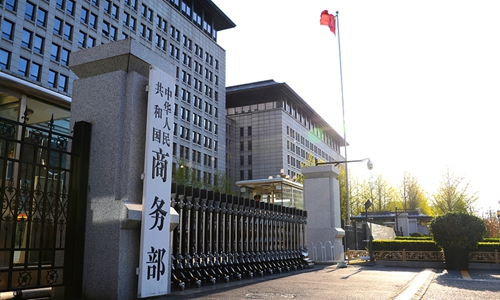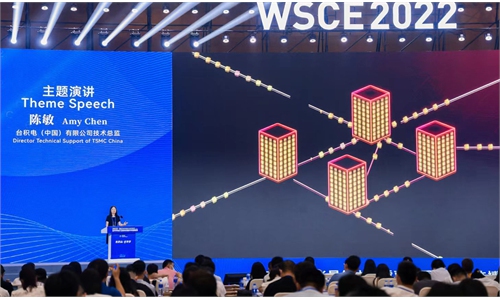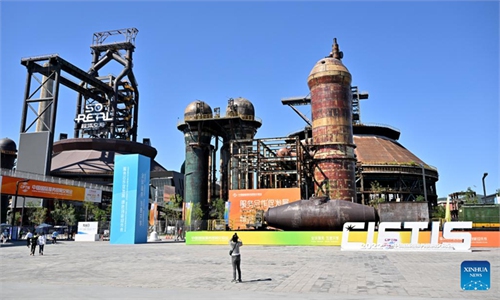China's Commerce Ministry says US anti-inflation bill's EV provisions may violate WTO rules

Shu Jueting
The provisions concerning discriminatory subsidies for electric vehicles (EV) under the US' so-called Inflation Reduction Act of 2022 (IRA) legislation are suspected of violating the WTO principles of "Most-Favored-Nation" treatment and national treatment, and China will take measures to safeguard its legitimate interests if necessary, China's Ministry of Commerce (MOFCOM) said on Thursday.
The $437 billion IRA, which was passed in August, included funding for consumer tax credits to offset the costs of EVs. But to qualify for the tax credits, carmakers must complete vehicle assembly in North America and source a significant percentage of major battery components, including metals like lithium, nickel and cobalt, from the US or countries that have free trade agreements with the US.
The legislation means that 70 percent of the EV models sold in the US market would not qualify for the subsidies, according to industry website autosinnovate.org. Industry observers also said the bill specifically targets China, the world's largest NEV maker, mirroring a desperate mentality to claim supremacy in a tech field where the US has seen gaps with other leading players.
China is also the world's largest producer of major battery components, with leading Chinese battery makers including CATL and BYD jointly accounting for about half of global market share.
Commenting on the IRA, Shu Jueting, a spokesperson of the MOFCOM, said at a regular press briefing in Beijing on Thursday that China has concerns on the subsidies' terms, which constitute discrimination against imported EVs.
"As a member of the WTO, the US should implement relevant investment policies in line with the WTO, and maintain a fair competitive trade order," Shu said, while stressing that China will continue following and evaluating the implementation of the US legislation and take measures "when necessary."
Huo Jianguo, vice president of the China Institute for World Trade Organization Studies, told the Global Times on Thursday that China may file complaints with the WTO, depending on the implementation process of the bill.
"This is a warning to the US. If China sues at the WTO, chances are high that the Chinese side will win, as the IRA's EV provisions do violate WTO rules from a legal perspective, and it is drafting such EV terms consciously," Huo said.
China is not the only country that has signaled deep concern over the bill. EU Trade Commissioner Valdis Dombrovskis, who also is a European Commission vice president, said the commission is assessing a number of discriminatory elements in the IRA for local content and local production requirements to see "if it's in line with WTO requirements and with government procurement agreements," Bloomberg reported.
South Korea also said it will actively consider filing a complaint at the WTO, citing possibilities that the new law could violate WTO rules and a bilateral free trade deal, Reuters reported. Some South Korean officials also view the rules as a "betrayal," the Bloomberg report said.
Huo noted that it is likely that the three will appeal to the WTO mechanism respectively. "If the WTO concludes that the US violated trade rules, it should make amendments to the legislation accordingly," Huo said.
Global Times



